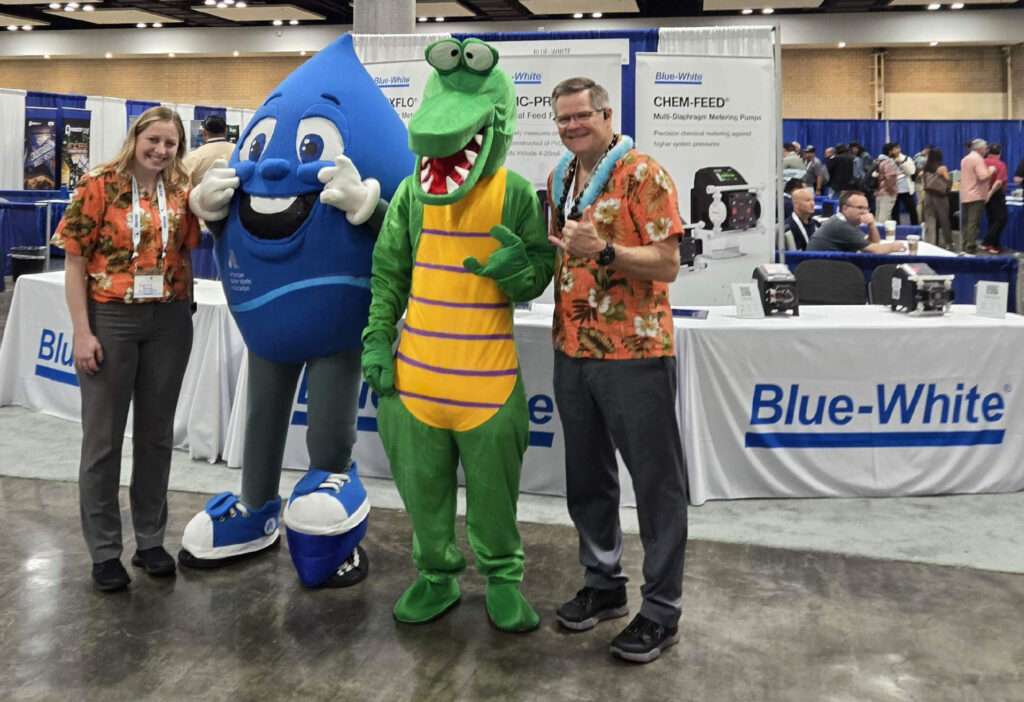
Water Disinfection Pumps & a Visit from ACE Mascot Eddy
It was a busy few days in Honolulu for the Pacific Water
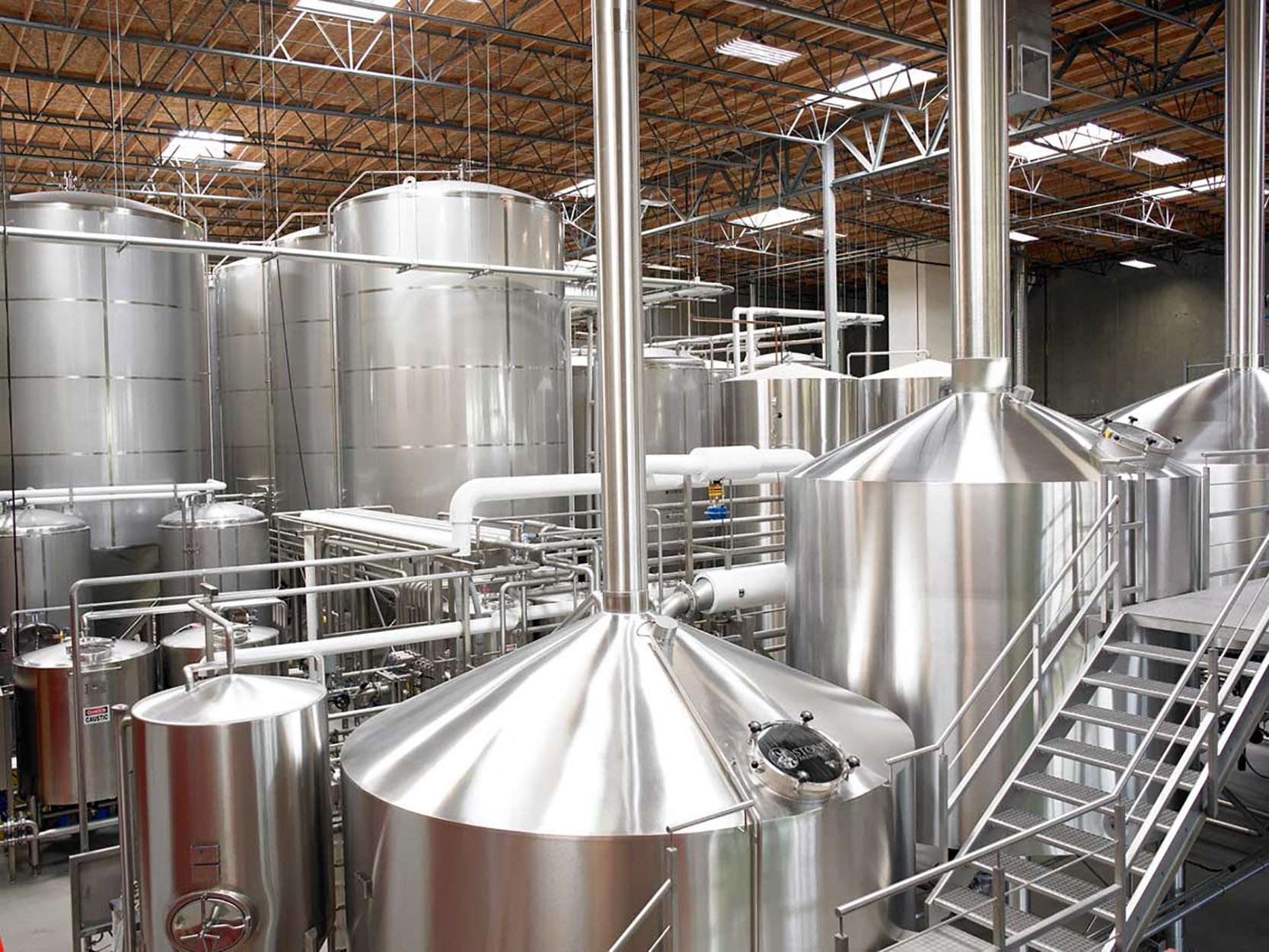
Beverage manufacturers are increasingly tasked with reclaiming and treating their effluent. As water gets more expensive and access to clean source water becomes more difficult, this trend is expected to grow. But these businesses are not water treatment experts and can often struggle to meet stringent and ever-changing effluent standards.
Beverage makers can face harsh consequences if they fail to properly treat their wastewater, including:
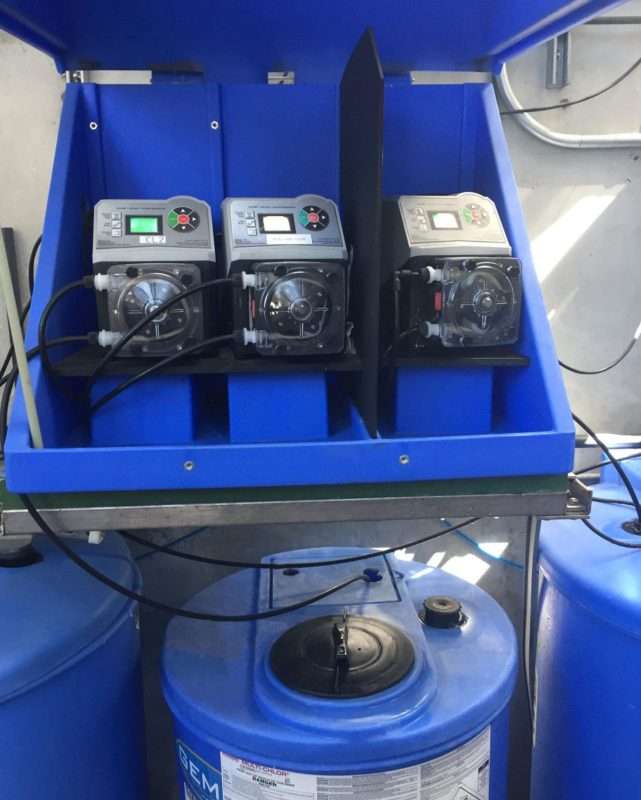
FINDING THE RIGHT TECHNOLOGY
There is a range of processes and technologies that a beverage company might need to consider in order to treat their wastewater. Depending on the makeup of the waste stream, it may require chemical treatment, such as pH adjustment or coagulation and flocculation. Biological processes and aeration may be needed to consume biodegradable organic pollutants. Membrane filtration, such as ultrafiltration and reverse osmosis (RO) systems, are often used to remove salts and other dissolved compounds.
Pre- and post-treatment chemical adjustment is particularly important, as it often requires injecting precise quantities of chemicals into the system in order to disinfect, as well as to adjust the acidity and alkalinity. Adding too much or not enough of a chemical can have an adverse effect on the total treatment process.
For example, wastewater must often meet strict pH requirements — often between 6 and 9 — in order to avoid corroding pipes or causing deposits. Injecting too much sodium hydroxide or other alkali can increase the pH beyond the acceptable range. Similarly, injecting too much chlorine upfront can damage a membrane filter, requiring more frequent changeouts, which in turn costs money and downtime.
BALANCING FOCUS
Putting it all together, beverage companies need to keep in mind what business they are in, and it’s not wastewater treatment. However, there are ways to balance effluent management while maintaining focus on business operations. One is to hire consultants or bring a dedicated water treatment specialists on board. Another is to send dedicated personnel to water and wastewater trade shows.
It is also imperative to work with suppliers and business partners to identify the most user-friendly technologies available. For example, peristaltic metering pumps are low maintenance and easy to use compared to many diaphragm pumps and thus may be a better choice in some systems.
STONE BREWERY: A CASE STUDY
Stone Brewery, Co., LLC prides itself on its commitment to environmental responsibility and sustainability. Based in Escondido, CA, the company sought to ensure it could produce an environmentally friendly product before officially opening its doors.
The biggest part of this commitment meant meeting state and county effluent standards. This required reclaiming all its wastewater and treating it before discharging it into sewers. Breweries produce a lot of wastewater, averaging about 10 gallons of waste for every gallon of product. Stone Brewery was no exception, producing about 100,000 gallons of effluent every day.
Without a water treatment expert on staff, the company sent personnel to water industry trade shows to learn about the various technologies and determine which solutions could help them meet their benchmarks. It took nearly three years of research before settling on a solution that produced compliant wastewater.
Ultimately, Stone Brewery chose to install a membrane bioreactor (MBR) followed by a reverse osmosis (RO) system. Chemical metering is critical to the entire system, so the company worked diligently to find metering pumps that could inject precise quantities of chemicals into the system. The pumps had to be easy to use and extremely accurate.
Stone Brewery purchased four Blue-White A2 peristaltic pumps (Figure 1). Two of those are used to inject sodium hypochlorite into the MBR filter backwashes. The third injects sulfuric acid into the stream between the MBR and RO system. The final pump adds sodium hydroxide to the filtered effluent to raise the pH and avoid corroding public wastewater pipes.
Written by:
Blue-White® Industries
714-893-8529

It was a busy few days in Honolulu for the Pacific Water
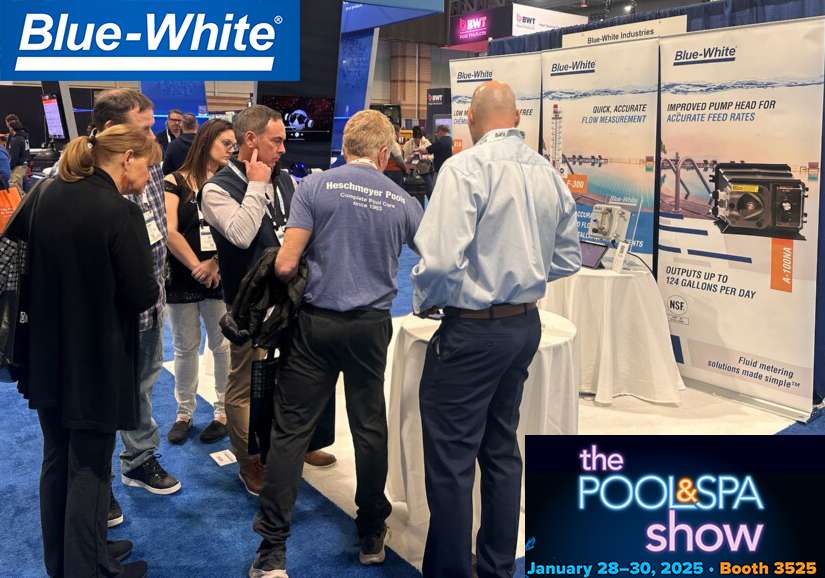
In January Blue-White attended the Pool Show in Atlantic City and displayed

Steve Hernandez /WaterWisePro and Blue-White®’s own Rich Hopkins proved they’re winners. The pair went up
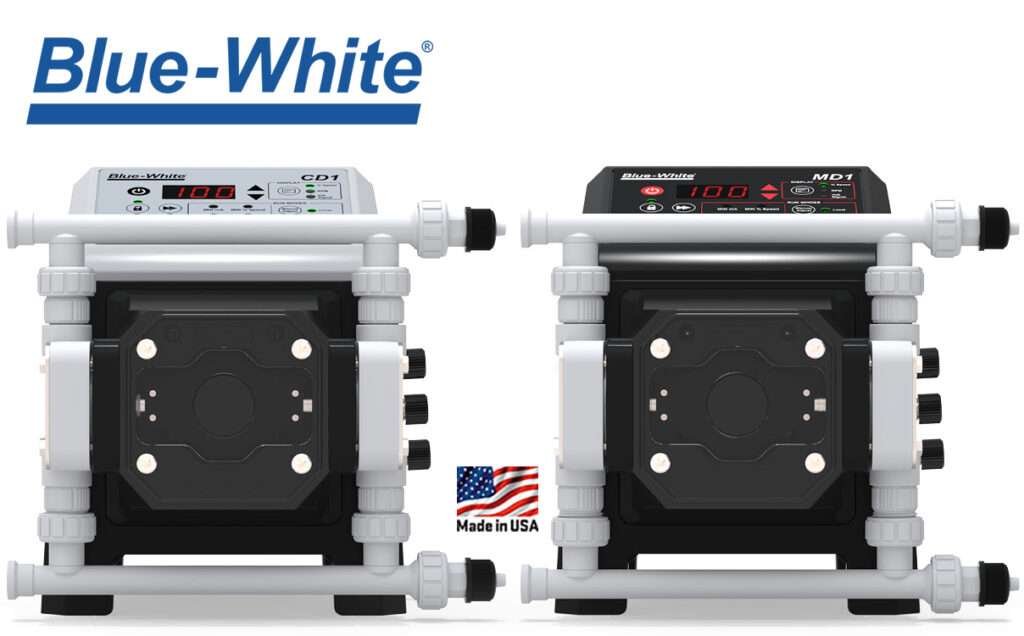
We’re excited to announce we’ve resumed shipment of CHEM-FEED® CD1 and MD1
Copyright © 2024 Blue-White
| Cookie | Duration | Description |
|---|---|---|
| cookielawinfo-checkbox-advertisement | 1 year | Set by the GDPR Cookie Consent plugin, this cookie is used to record the user consent for the cookies in the "Advertisement" category . |
| cookielawinfo-checkbox-analytics | 11 months | This cookie is set by GDPR Cookie Consent plugin. The cookie is used to store the user consent for the cookies in the category "Analytics". |
| cookielawinfo-checkbox-necessary | 11 months | This cookie is set by GDPR Cookie Consent plugin. The cookies is used to store the user consent for the cookies in the category "Necessary". |
| CookieLawInfoConsent | 1 year | Records the default button state of the corresponding category & the status of CCPA. It works only in coordination with the primary cookie. |
| elementor | never | This cookie is used by the website. It allows the website owner to implement or change the website's content in real-time. |
| viewed_cookie_policy | 11 months | The cookie is set by the GDPR Cookie Consent plugin and is used to store whether or not user has consented to the use of cookies. It does not store any personal data. |
| Cookie | Duration | Description |
|---|---|---|
| _ga | 2 years | The _ga cookie, installed by Google Analytics, calculates visitor, session and campaign data and also keeps track of site usage for the site's analytics report. The cookie stores information anonymously and assigns a randomly generated number to recognize unique visitors. |
| _gat_gtag_UA_85334924_1 | 1 minute | Set by Google to distinguish users. |
| _gid | 1 day | Installed by Google Analytics, _gid cookie stores information on how visitors use a website, while also creating an analytics report of the website's performance. Some of the data that are collected include the number of visitors, their source, and the pages they visit anonymously. |
| CONSENT | 2 years | YouTube sets this cookie via embedded youtube-videos and registers anonymous statistical data. |
| Cookie | Duration | Description |
|---|---|---|
| VISITOR_INFO1_LIVE | 5 months 27 days | A cookie set by YouTube to measure bandwidth that determines whether the user gets the new or old player interface. |
| YSC | session | YSC cookie is set by Youtube and is used to track the views of embedded videos on Youtube pages. |
| yt-remote-connected-devices | never | YouTube sets this cookie to store the video preferences of the user using embedded YouTube video. |
| yt-remote-device-id | never | YouTube sets this cookie to store the video preferences of the user using embedded YouTube video. |
Please fill out the form to request a quote.
A sales rep will reach out to you.
| Image | Catalog Number | Description | Price | Buy |
|---|